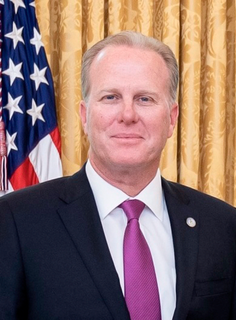A Quote by Christopher Lasch
It is no longer an unwritten law of American capitalism that industry will attempt to maintain wages at a level that allows a single wage to support a family.
Related Quotes
If a market exists for low-paid work, then we should think about how we can make this type of work more attractive by providing government assistance. Of course, the wage-earner must be able to live off of his wages. We will not allow poverty wages or dumping wages. But the wage earner can receive a combined wage that includes both his actual wages and a government subsidy.
[A]s we celebrate 75 years of the minimum wage, we must also recognize that it is no longer achieving its potential impact in our economy or for America's working families. Every American deserves the chance to build a better life for his or her family - and raising the minimum wage will provide that opportunity.
We stand for a living wage. Wages are subnormal if they fail to provide a living for those who devote their time and energy to industrial occupations. The monetary equivalent of a living wage varies according to local conditions, but must include enough to secure the elements of a normal standard of living-a standard high enough to make morality possible, to provide for education and recreation, to care for immature members of the family, to maintain the family during periods of sickness, and to permit of reasonable saving for old age.
Sharp increases in the minimum wage rate are also inflationary. Frequently workers paid more than the minimum gauge their wages relative to it. This is especially true of those workers who are paid by the hour. An increase in the minimum therefore increases their demands for higher wages in order to maintain their place in the structure of wages. And when the increase is as sharp as it is in H.R. 7935, the result is sure to be a fresh surge of inflation.
A general flat minimum-wage law for all industry is permissible, but I do not think that it is a particularly wise method of achieving the end. I know much better methods of providing a minimum for everybody. But once you turn from laying down a general minimum for all industry to decreeing particular and different minimum for different industries, then, of course, you make the price mechanism inoperative, because it is no longer the price mechanism which will guide people between industries and trades.
Since it is to the advantage of the wage-payer to pay as little as possible, even well-paid labor will have no more than what is regarded in a particular society as the reasonable level of subsistence. The lower ranks of labor will commonly have less, and if public relief were afforded even up to the wage-level of the lowest ranks of labor, that relief would compete in the labor market; check or dry up the supply of wage-labor. It would tend to render the performance of work by the wage-earner redundant.
What the carburetor, sparkplug and self-starter are to an automobile, initiative, private enterprise and executive ability are to industry as a whole, including the wage earner, wage payer, wage spender and wage saver, i.e., the investor. If the sparkplug and self-starter get out of commission, the car will come to a standstill.








































